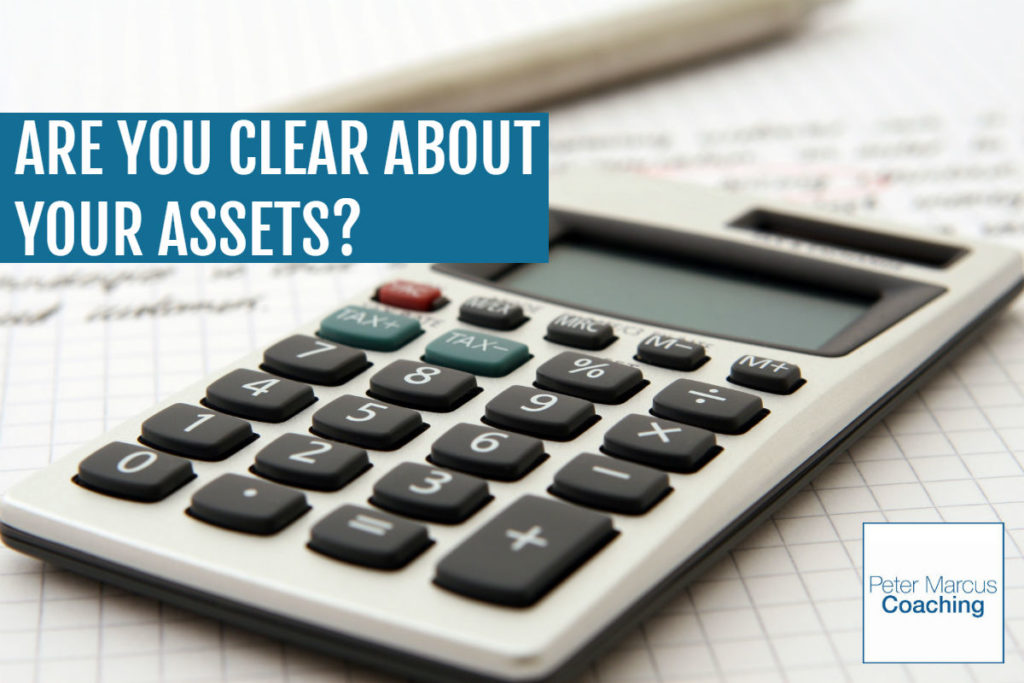Are You Clear About Your Assets?

As we continue to explore the theme of making decisions, we hope to help you discover the importance of being clear about your assets and their role in how you make your choices. Do you have an executive mindset about how you manage your choices and how you invest further in your assets?
A large part of a company’s focus is on building and managing asset value. Boards and management teams come together to discuss how they can increase the company’s asset value beyond its perceived or implied price and stock share. Assets are everything from what the business has acquired to what it could have through acquisition or growth.
Staff is also a part of asset value. As an owner, you may consider asking yourself how your employees add to the valuation of your business. Who are your employees, and what kind of value do they bring to your company? If there is a new owner involved, could the potential assets of a new owner increase the asset value of the business?
Let us consider these questions.
How to increase asset value in a business
When an owner looks at a company’s assets, he is looking at what the business owns with the outlook that it will yield increased revenue in the future. How a business can grow its asset value depends on how well staff, acquisitions, collaborations, knowledge and intellectual property, and investing are managed.
Increasing staff capability
As you develop yourself as the owner, do you have plans to build your team? By bringing in coaches, mentors, or trainers into the picture, you are increasing the valuation of your staffing assets.
Are your leaders and management gaining adequate training in how they interact with their teams to build long-term value? Do you offer stock options to your staff? Offering benefits like stock options can lead to increased asset value in having a more dedicated team.
Acquisitions
Acquisitions are a common strategy to increase the asset value of a company. This approach to improving your business’s asset value can also enhance your physical assets by growing databases, bringing more clients, and adding better machinery. It can enlarge a company’s territory either by becoming a part of a bigger asset pool, or it can absorb new assets (such as Amazon did recently with its acquisition of Whole Foods).
Collaborations
Collaboration can also be an indicator of strong assets, and increase a company’s asset value. When a business forms a partnership with other firms, it gains asset value through a more significant asset pool.
Take the example of IBM. The tech company bought dozens of small software companies, thus automatically increasing its reach in market share and distribution channels.
Knowledge and intellectual property
Branding and other intellectual property such as increased knowledge of the industry can also increase your company’s asset value. Knowledge and experience are indicators of a good leader, which is a human asset that adds value.
Intellectual property is another valuable asset. It is a way to introduce a company’s or product’s future, and protect it from competition.
Investing in the business owner
A company is as good as its leader’s skills. Therefore, the development of the owner is most likely to increase the asset value of a business. How can you, as the owner, develop and bring more to the table for your business?
A company’s owner is an asset as well. An owner may bring individual skill sets through previous experiences in managing, industry knowledge, and historical knowledge. Owner foresight and long-term vision are vital to a company’s longevity. The level of commitment a business owner brings and how she communicates about her commitment act as an example to her staff.
Human capital is an important, yet often overlooked, part of a company’s asset value. A dedicated team further increases asset value by attracting more investment and team members. Ultimately, leadership, charisma, and networking skills are instrumental to the growth of asset value.
The importance of clarity in assets
There is a vital need to understand and have transparency in business valuation. Oftentimes business owners and management know their companies very well, but are little aware of the spread of asset value.
Understanding and determining the real value of the business is critical to the sale of your company. Your assets are what will help you in your exit, whether it be through acquisition or IPO.
What kinds of assets do you have currently that you can use to help with future growth? Consider physical assets, intellectual assets, or staffing assets. Are you using the assets in your business to your best advantage? What about your intangible assets? Do you have clarity on all these details?
Are you clear about your assets?
Many small business owners lack the knowledge of how to go about learning about their company’s assets. It can be a difficult portion of your company that you’d rather not have to deal with. Nevertheless, it is an essential portion of the success of what you have spent your energy and resources to build.
If you are having difficulties in being clear about your assets, have a chat with Peter today to further your knowledge base.

